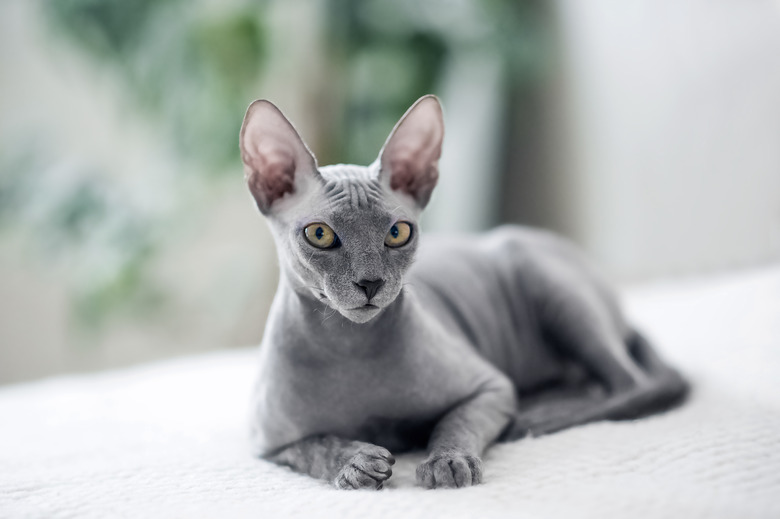The Sphynx cat is one of the most unique and fascinating cat breeds in the world. Known for its hairless appearance, this breed has captured the hearts of cat enthusiasts everywhere. But there’s more to the Sphynx than meets the eye. In this article, we’ll dive deep into the history, characteristics, care requirements, and common misconceptions about this extraordinary feline. Whether you’re considering adopting a Sphynx or simply curious about the breed, this guide will provide you with everything you need to know.
The History of the Sphynx Cat
Contrary to popular belief, the Sphynx cat is not an ancient breed. Its origins can be traced back to the 1960s in Toronto, Canada, when a hairless kitten named Prune was born to a domestic cat. This genetic mutation sparked interest among breeders, who began selectively breeding hairless cats to establish the Sphynx breed.
Over the years, the breed was further developed by crossing these cats with other breeds, such as the Devon Rex, to ensure genetic diversity and health. The Sphynx was officially recognized by cat registries in the 1980s and has since become a beloved breed worldwide.
Physical Characteristics of the Sphynx Cat
1. Hairless Appearance
The most striking feature of the Sphynx is its lack of fur. However, the Sphynx is not entirely hairless. These cats are covered in a fine layer of peach-fuzz-like down, giving them a soft, suede-like texture. Some Sphynx cats may also have short hair on their ears, nose, tail, and toes.
2. Wrinkled Skin
The Sphynx’s skin is often covered in wrinkles, especially around the face, shoulders, and legs. These wrinkles add to their unique appearance and require regular cleaning to prevent dirt and oil buildup.
3. Large Ears and Eyes
Sphynx have large, wide-set ears that are often described as bat-like. Their eyes are lemon-shaped and can come in a variety of colors, adding to their expressive and alert appearance.

4. Muscular Build
Despite their delicate appearance, Sphynx are surprisingly muscular and sturdy. They have a medium-sized body with a rounded abdomen, often referred to as a “potbelly.”
Personality and Temperament
The Sphynx cats is known for its outgoing, affectionate, and playful personality. Here are some key traits that make this breed stand out:
1. Social and Friendly
Sphynx cats thrive on human interaction and love being the center of attention. They are highly social and enjoy spending time with their families, often following their owners around the house.
2. Playful and Energetic
These cats are incredibly playful and retain their kitten-like energy well into adulthood. They enjoy interactive toys, climbing, and even playing fetch.
3. Affectionate and Cuddly
Sphynx cats are known for their love of cuddling. They seek warmth and often curl up under blankets or snuggle with their owners.
4. Intelligent and Curious
This breed is highly intelligent and curious, making them quick learners. They enjoy exploring their surroundings and solving puzzles.
Caring for a Sphynx Cats
While the Sphynx cats is a delightful companion, it requires special care to keep it healthy and happy. Here are some essential care tips:
1. Skin Care
Since Sphynx cats lack fur, their skin is exposed to the elements. Regular bathing is necessary to remove excess oils and dirt. Use a gentle, hypoallergenic shampoo and moisturize their skin to prevent dryness.
2. Sun Protection
Sphynx cats are prone to sunburn due to their lack of fur. Keep them indoors during peak sunlight hours or apply pet-safe sunscreen if they spend time outdoors.
3. Warmth
These cats are sensitive to cold temperatures and need to be kept warm. Provide cozy blankets, heated beds, and warm clothing during colder months.
4. Diet and Nutrition
Sphynx cats have a high metabolism and require a nutrient-rich diet to maintain their energy levels. Feed them high-quality cat food and monitor their weight to prevent obesity.
5. Regular Vet Checkups
Due to their unique genetic makeup, Sphynx cats may be prone to certain health issues, such as hypertrophic cardiomyopathy (a heart condition) and skin infections. Regular vet checkups are essential to ensure their well-being.
Common Misconceptions About the Sphynx
1. They Are Hypoallergenic
While Sphynx cats produce less dander than other breeds, they are not entirely hypoallergenic. People with severe cat allergies may still react to their saliva or skin oils.
2. They Are High-Maintenance
While Sphynx cats do require regular grooming and care, their affectionate nature and playful personality make the extra effort worthwhile for many owners.
3. They Are Fragile
Despite their delicate appearance, Sphynx cats are robust and energetic. They are not as fragile as they may seem.
Is a Sphynx Cat Right for You?
Before adopting a Sphynx cat, consider the following:
- Time and Commitment: Sphynx cats require regular grooming, attention, and care.
- Allergies: Ensure that no one in your household is allergic to cats.
- Lifestyle: These cats thrive in homes where they can receive plenty of love and interaction.
If you’re ready for a unique, loving, and entertaining companion, the Sphynx cat may be the perfect addition to your family.
Conclusion
The Sphynx cat is a truly remarkable breed that combines a unique appearance with a loving and playful personality. While they require special care, their affectionate nature and entertaining antics make them a joy to have around. Whether you’re a seasoned cat owner or a first-time pet parent, the Sphynx cat is sure to bring warmth and happiness into your home.
By understanding their history, characteristics, and care requirements, you can provide your Sphynx with a happy and healthy life. If you’re considering adopting one, be prepared for a rewarding and unforgettable experience with this hairless wonder.
